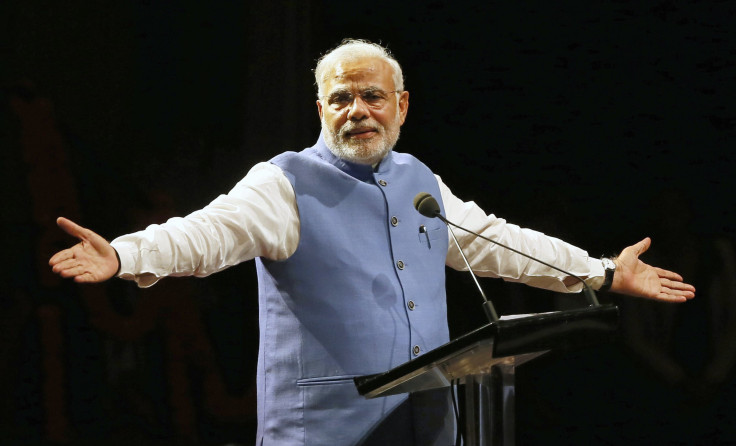India Land Acquisition Amendment: Controversial Bill, PM Modi Called 'Anti-Farmer'

India’s Prime Minister Narendra Modi and his government will present a contentious Land Acquisition Amendment Bill in the lower house on March 9 and 10 instead of Wednesday as was previously expected, according to NDTV. Modi delayed presenting the bill to include changes so that it could be passed by both houses of the parliament, as his original bill had been previously criticized for being pro-corporate and anti-farmer as land is taken away by the government for development.
It will be Modi’s last chance to pass the bill amendment in the Budget session ends on April 5, after which it would lapse and cannot be introduced again. Even without the new changes, the bill was expected to pass smoothly in the lower house Lok Sabha, in which Modi’s Bharatiya Janata Party leads the National Democratic Alliance (NDA) coalition that holds the majority of the seats. However, the it was expected to face difficulty passing in the upper house Rajya Sabha, in which the United Progressive Alliance (UPA) coalition led by opposition party Indian National Congress holds a slight majority.
Modi reached out to opposition parties Tuesday saying that he was willing to consider necessary changes to his bill in order to ensure its smooth passage in parliament. "If there is anything anti-farmer in the land bill, we’re ready to correct them. The existing act does not have sufficient provisions for land acquisition. We need to acquire land for public welfare schemes. We need to address the shortcomings in the Act," Modi said, according to Indian news site IBN Live.
An eight-member BJP committee has been consulting representatives of 250 organizations and activists protesting against Modi's bill on how to change it. The committee briefed NDA chairman Amit Shah of the suggested changes Wednesday, according to NDTV, and the amended bill will dilute its pro-corporate elements. Modi was initially against altering his proposal but changed his mind after NDA ally parties Shiv Sena and Shiromani Akali Dal contended that his bill was perceived to be anti-farmer, according to NDTV.
Under Modi’s original proposal, the government would not need the 80 percent consent previously required to acquire land for development in five different sectors including national security, defense, rural infrastructure, industrial corridors and affordable housing, according to DNA India. The fertility of the land would also be disregarded during land acquisition. This clause received the most flak from critics as being anti-farmer. Compensation remains unchanged at four times the market price for rural land and twice for urban land. Akali Dal suggested that 70 percent consent be required instead of none, as well as making social impact assessments when acquiring huge chunks of land, to placate any possible fallout, according to NDTV.
Modi had wanted to change the existing land acquisitions act passed in 2013 by the previous Congress Party-led government since he came into power in May of last year. “We knew you were hurrying passage of the bill for political gains, yet we stood with you,” Modi said to the Congress party when he addressed the lower house in speech last Friday. “But why did it take you 120 years to find flaws in the law?” he asked. Congress’ 2013 land acquisition act replaced an existing Land Acquisition Act of 1984 enacted during the British rule. The opposition Congress had vowed last Tuesday to block Modi’s bill no matter what, and had said that they would “walk the extra mile” to ensure their 2013 land acquisition act remained intact, according to The Economic Times India.
© Copyright IBTimes 2024. All rights reserved.












